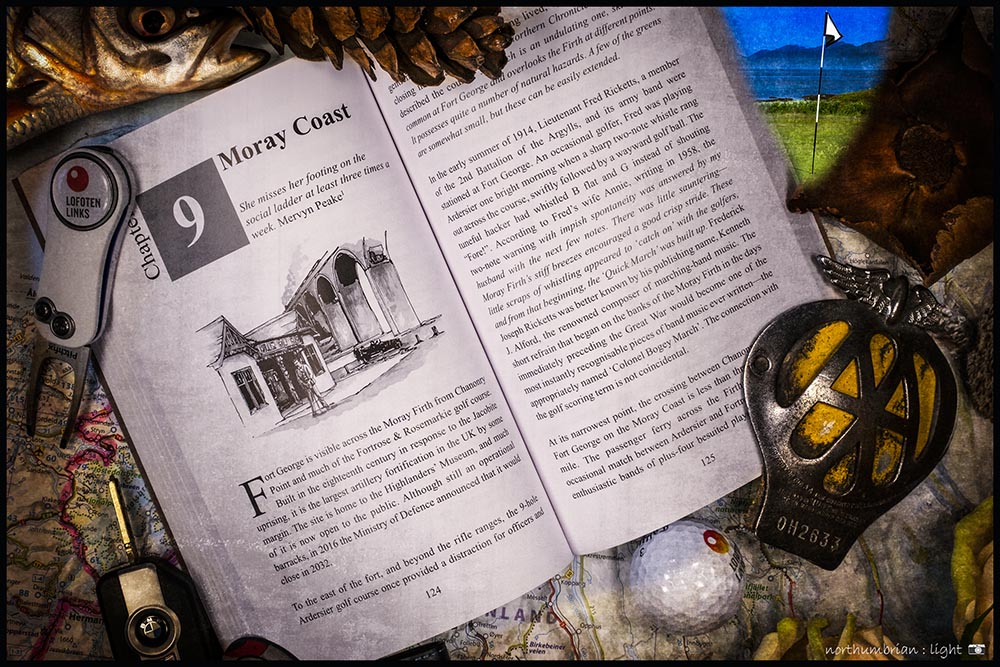Chapter 9: In the early summer of 1914, Lieutenant Fred Ricketts, a member of the 2nd Battalion of the Argylls, and its army band were stationed at Fort George. An occasional golfer, Fred was playing Ardersier one bright morning when a sharp two-note whistle rang out across the course, swiftly followed by a wayward golf ball. The tuneful hacker had whistled B flat and G instead of shouting “Fore!”. According to Fred’s wife Annie, writing in 1958, the two-note warning with impish spontaneity was answered by my husband with the next few notes. There was little sauntering—Moray Firth’s stiff breezes encouraged a good crisp stride. These little scraps of whistling appeared to ‘catch on’ with the golfers, and from that beginning, the ‘Quick March’ was built up. Frederick Joseph Ricketts was better known by his publishing name, Kenneth J. Alford, the renowned composer of marching-band music. The short refrain that began on the banks of the Moray Firth in the days immediately preceding the Great War would become one of the most instantly recognisable pieces of band music ever written—the appropriately named ‘Colonel Bogey March’. The connection with the golf scoring term is not coincidental.
Tag Archives: Moray
Golf Mates at Covesea
The Golf Mates have discovered Covesea! This entertaining video captures the essence of Andy Burnett’s course in a way that the written word never can. It is the perfect companion to Chapter 9 of Golf in the Wild – Going Home – the Moray Coast:
Built around natural features, high ground, cliff faces, enormous rocks and ideal links land, it is remarkable. Andy Burnett bought the land about fifteen years ago and, with his brother Graeme, expended huge effort in turning it into a 9-hole golf course. … as soon as I saw the place, I fell in love with it completely. Unusually, Covesea is not a members’ club, so the course is entirely Andy’s domain, thereby avoiding the plague of the grumpy golfer who will seek to blame all his misfortune on anything but his inadequate game. Consequently, the usual rules, regulations and members’ priority are entirely missing. “We’ve always run the place without any airs and graces—everyone is welcome to come and play.” It is an operational model that I find extremely attractive.
The heroic trio came to the same conclusions – a remarkable course that golfers must be encouraged to visit – they will not be disappointed.
